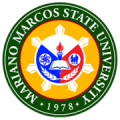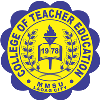<P><FONT face="Verdana, Arial, Helvetica, sans-serif" size=5><STRONG>BOR oks program to assist agri, other students</STRONG></FONT></P>
THE FINANCIAL Assistance for Students to Promote Agriculture, Fisheries, and Related Courses and Entrepreneurship (FAST PACE) Program was approved for implementation by the Board of Regents in its 73rd Regular Meeting on Nov. 22 at the Sulo Hotel in Quezon City.
With the College of Agriculture and Forestry (CAF) as proponent, the program carries the goal to promote agriculture, agricultural engineering, forestry/agroforestry, development communication, home technology, fisheries, and marine biology (ARCs) as profession “in the context of post-modern globalized economy”. The program pushes itself to reinvigorate and sustain the interest of the general public especially college-bound youth in academic training in the ARCs.
The program generally aims to contribute to the sustained academic training and development of quality and adequate pool of professional manpower along the ARCs. It specifically targets to encourage quality students to take degree courses in the ARCs; increase and sustain the number of enrollees in the said degree programs; produce quality graduates who will manage agro-fishery productions more efficiently and economically; and provide assistance to qualified students.
Rationale of the program
The proposal was earlier made to respond to the widening gap between the technically available and the required manpower needs in the agriculture and fisheries industries. According to a 2003 study, the said industries are fast-becoming an occupation of the grey and differently-oriented-and-skilled population. The young, particularly farmers’ children and rural dwellers, the study says, are increasingly shying from agriculture-related vocations. The choices are mostly the non-ARCs demanded highly overseas. According to Dr. Carmelo J. Esteban, CAF dean, the ARC has become not only a last-choice-course but also “a choice of last resort”.
The role of the academe, therefore, is put at center stage under this situation, Esteban said. Concerned academic institutions such as MMSU is called upon to continually assert on their mission to train and develop adequate and quality manpower for the agriculture and rural sectors.
Qualifications and Privileges
To qualify for the program, an applicant should, among other qualifications, belong to a family whose annual income is not more that P50,000. Once accepted as beneficiary of the program, the student is entitled to free school fees, monthly stipend, accommodation in any available student-dormitory, and student assistantship.
Source of program finances
Local Government Units, NGOs, foundations, and other scholarship-granting private organizations and corporations indulged in agriculture and similar businesses shall be tapped to financially assist the program. The rest shall be subsidized by the university.
Gallery
Dear Valued Client,
We will be introducing our newly upgraded website on October 31, 2024 – offering faster access, improved navigation, and enriched content for students, faculty, partners, and stakeholders. Experience how we cultivate minds and transform futures at MMSU.

 CAFSD
CAFSD CASAT
CASAT CAS
CAS CBEA
CBEA CCIS
CCIS COE
COE CHS
CHS CIT
CIT CTE
CTE COM
COM CVM
CVM Graduate School
Graduate School



_91c2e13bde54cafe009c166f9aa4199f.jpg)
